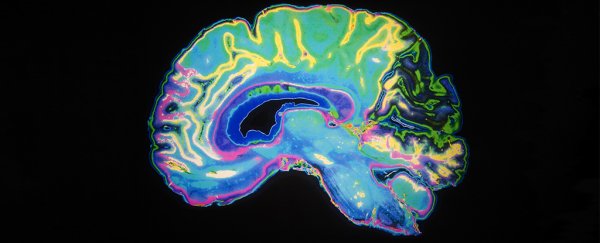On the surface, diverse mental health conditions like autism, alcoholism, and schizophrenia seem to have few things in common with one another.
A fresh look at the genes being expressed in the brains of individuals diagnosed with one of five mental illnesses reveals an unexpected degree of overlap, suggesting many psychiatric disorders are more similar than their symptoms would suggest.
Five years ago, a team of researchers used data supplied by the Psychiatric Genomics Consortium experiment to show people with autism spectrum disorder ( ASD), attention deficit-hyperactivity disorder, bipolar disorder, major depressive disorder, and schizophrenia often share a handful of genetic variations.
While somewhat unexpected, it also didn't say much about how those genes might relate to any of those conditions.
A follow-up study has added new details to the discovery, revealing levels of similarity between diverse disorders that aren't just surprising, but downright counterintuitive.
The international team of scientists produced what's known as a transcriptomic profile on 700 brain samples taken from deceased patients who had been diagnosed with either ASD, schizophrenia, bipolar disorder, depression, or alcoholism.
This gave them a library of not just the genes present in these specimens, but of their relative activity in the brain's outer layer, the cortex.
These libraries were then compared with samples taken from just under 300 patients who had no diagnoses, as well as close to 200 individuals who had inflammatory bowel disease.
While we might expect conditions with related symptoms to share similar gene expressions, these results were a lot harder to explain.
Bipolar and depression are both classified as mood disorders, for instance, so there'd be no surprise if they shared fundamental biochemistry.
The fact the transcriptome for bipolar had more in common with schizophrenia came as quite a shock.
"This is not what clinicians would've expected," says psychiatric geneticist Kenneth Kendler from Virginia Commonwealth University.
"It certainly suggests the idea that these are sharply different kinds of disorders is not valid."
Links were also found between schizophrenia and autism. This isn't exactly a revelation, but the research did show that many of the genes in both conditions are more active in those with ASD.
Genes known to be related to the rate at which neurons fire in the brain were found to be quieter in samples taken from people with ASD, schizophrenia, and bipolar disorder.
Besides a bunch of interesting correlations, the team failed to find any similarity between alcoholism and the other four illnesses.
Previous research on twins had suggested individuals with alcohol dependence and depression are more likely to share certain genes, hinting at an overlap in neurology.
If there is, this research suggests those shared genes aren't expressing themselves. The team found no similarity in transcriptome between samples from people diagnosed with alcoholism and those with depression.
Studies such as these show just how fuzzy the concept of disease is, especially when it comes to mental health.
Far from having distinct boundaries, genetic research is revealing how tangled the roots of seemingly diverse mental illnesses really are.
"We're beginning to see the bits of the puzzle starting to slowly get clearer," says Kendler.
Which is a great thing for improving how we diagnose and treat suffering in people who experience mental illness.
This research was published in Science.
